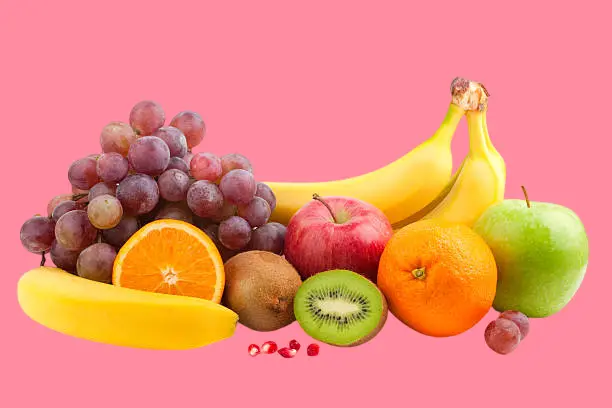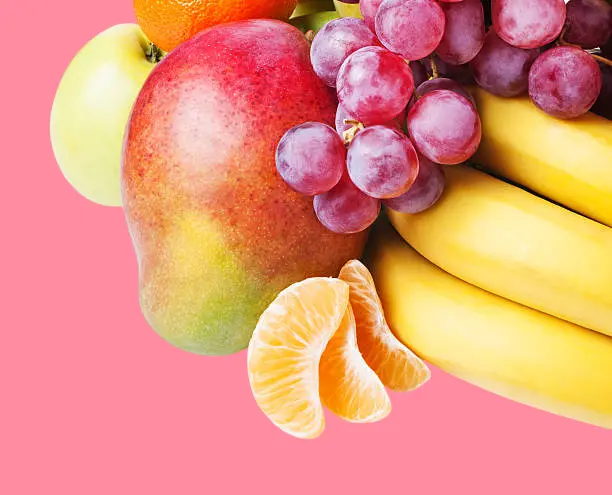Fruits are considered one of the most important sources of natural energy, thanks to their natural sugars and beneficial nutrients.
However, the effect of this sugar on the skin raises many questions among those seeking to maintain the freshness and beauty of the face.
What is the natural sugar in fruits?

The natural sugar found in fruits is known as fructose, and it differs from refined sugar in its composition and effect:
- It is digested more slowly than artificial sugar.
- It does not cause a sharp rise in blood glucose levels.
- It is accompanied by fiber and vitamins that reduce its negative effect on the skin.
General Benefits of Natural Sugar for the Skin
When consumed in moderation, natural sugar can support the freshness of the skin, as it:
- Provides cells with the energy needed for regeneration.
- Aids in the absorption of some important vitamins for the skin.
- Contributes to maintaining the natural moisture balance in the skin.
Excessive Eating of Fruits High in Sugar
Although fruits are beneficial, consuming too much of them can harm the health and freshness of the skin, as:
- Excessive consumption leads to increased insulin levels, which causes skin inflammation.
- It accelerates the glycation process, which weakens collagen.
- It may cause acne or loss of elasticity.
Glycation and its Effects on the Skin
Glycation is the process of sugar attaching to proteins, which negatively affects collagen and skin radiance:
- It produces harmful molecules.
- It causes sagging skin and premature wrinkles.
- It can be reduced by reducing added sugars and increasing antioxidants.
Suitable Fruits for Maintaining Skin Radiance
Choosing the right fruits helps support skin radiance without causing harm, including:
- Berries, kiwi, strawberries, and avocados.
- They contain antioxidants that fight free radicals.
- They are rich in vitamin C, which boosts collagen production.
Balancing Fruit Intake for Maintaining Skin Radiance
Balance is key to maximizing the benefits of natural sugars to maintain skin radiance. Therefore:
- Eat 2 to 3 servings of fruit daily.
- Choose whole fruits instead of juices.
- Make sure to eat them with meals containing protein or healthy fats to reduce sugar absorption.
The Role of Fiber in Reducing Negative Effects

The fiber found in fruits helps regulate blood sugar absorption, as it:
- Slows digestion and reduces glucose fluctuations.
- Supports gut health, which is reflected in clear skin.
- Prevents inflammation resulting from sudden blood sugar spikes.
The Relationship Between Natural Sugar and Skin Hydration
Moderate natural sugar helps maintain cell moisture balance, which helps maintain skin freshness:
- Supports healthy water retention within the skin.
- Gives the skin a plump, radiant appearance.
- However, excessive consumption can lead to the opposite effect and increase dryness.
Frequently Asked Questions About Natural Sugar and Its Effect on the Skin
Does natural sugar cause acne?
Yes, when consumed in excess, but in moderate amounts, it has no negative effects.
Are natural juices better than whole fruit?
No, because juice lacks the fiber that limits sugar absorption.
Do all fruits contain the same amount of sugar?
No, the percentage varies from one type to another. For example, grapes and bananas are higher than berries and kiwi.
How can we reduce the effect of sugar in fruits on the skin?
By eating them with balanced meals, drinking enough water, and choosing lower-sugar varieties.
Article Summary
The natural sugar in fruits is not an enemy of the skin; rather, it is a source of energy and benefits if consumed consciously and in moderation.
The problem lies not in the presence of sugar itself, but in the quantity, type, and method of consumption. When we choose fruits rich in fiber and antioxidants and follow a balanced diet, we maintain the freshness and youthfulness of our skin.